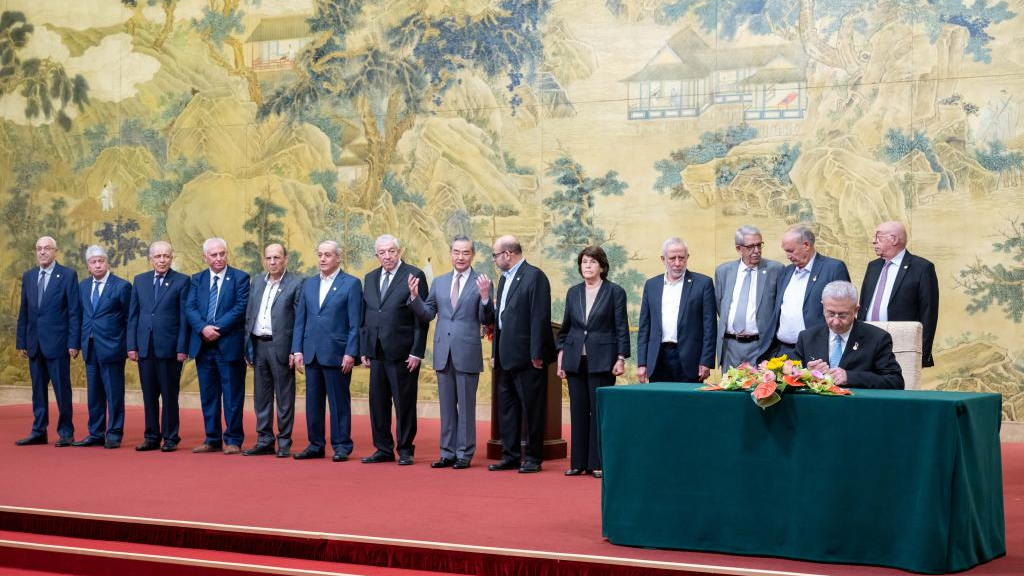While the elections in the United States (U.S) is under full swing, adversarial countries around the world are walking a thin rope between ensuring stability and preparing for potential changes in American policy. Electoral democracies inherently involve uncertainty, particularly when a country is unsure of how its relationship with the sole superpower might evolve. In this context, China appears to be betting on caution.
Recent moves and actions by Beijing seem to suggest that it does not want to become a domestic electoral topic within American elections. Either rhetorically or policy wise, Beijing has understood that any mention of its country, especially due to its own doing, is going to harm long term interests of the US-China relations. More so than not, Beijing has ironically opted for a strategic retreat.
Historically, U.S. elections have often featured China as a focal point of political rhetoric, with candidates from both major parties leveraging anti-China sentiment to galvanize support. This dynamic has made China cautious of actions or statements that could escalate tensions or make it a target in the U.S. electoral discourse.
Factors influencing Beijing’s strategic retreat
Several factors contribute to China’s cautious stance. Firstly, Beijing is acutely aware of the volatile nature of U.S. electoral politics. Any aggressive moves in disputed areas or provocative statements could be amplified by U.S. Presidential candidates, leading to tougher policies regardless of which party wins. Chinese diplomats understand that becoming a central theme in the U.S. electoral debate would ultimately result in more stringent post-election policies.
Secondly, China is focused on maintaining stability in its diplomatic relations with the U.S., given the significant economic interdependence between the two nations. Beijing’s US policy has evolved by learning the hard lessons and now aims to avoid actions that could provoke retaliatory measures or complicate ongoing trade negotiations.
However, at the same time Beijing’s strategic manoeuvres seem to suggest a carefully orchestrated diplomatic facade designed to project an image of peace while setting the stage for potentially significant geopolitical shifts post-election. In recent months, China has emphasized its commitment to global stability and cooperative dialogue, presenting itself as a responsible stakeholder in international affairs. This approach seems calculated to influence global perceptions and mitigate potential backlash against its policies during a period of heightened U.S. political sensitivity.
For instance, China recently refrained from commenting on U.S. President Joe Biden’s decision to exit the presidential race. Foreign Ministry spokeswoman Mao Ning recently stated that, “The U.S. election is an internal matter,” and offered no further comment when asked about China’s reaction. This silence may be part of a broader strategy to maintain neutrality while preparing for significant policy adjustments based on the U.S. election outcomes.
By adopting a low-key stance, the Chinese Communist Party (CCP) aims to minimize its visibility in U.S. electoral discourse. This involves avoiding provocative military manoeuvres in contested regions like the South China Sea (SCS), refraining from sharp criticisms of U.S. policies, and managing sensitive issues such as Taiwan with restraint. The recent high-level discussions with the Philippines on de-escalating disputes in the SCS exemplify this approach. This move likely aims to reduce regional friction and project a cooperative image ahead of the U.S. elections. Regardless of its intentions, the de-escalation effort sends a direct message to Washington and suggests that Beijing’s strategies may shift significantly from caution to confrontation after the elections.
In conclusion, the true impact of Beijing’s strategy may only become evident after the U.S. presidential elections. The shift in U.S. leadership could bring about changes in American foreign policy, but it is unlikely that an easy policy towards China will emerge. Beijing, on the other hand, is likely positioning itself to respond swiftly to these changes, potentially leading to major decisions and policy adjustments that could reshape the geopolitical landscape. China’s cautious approach in the lead-up to the U.S. elections therefore appears to be a strategic move designed to avoid becoming an electoral pawn, while at the same time, masking its true intentions and preparing for a potentially more assertive post-election strategy. In this case, the CCP’s approach must be dealt with further caution, with like-minded countries preparing for intensified escalation post the American elections.

